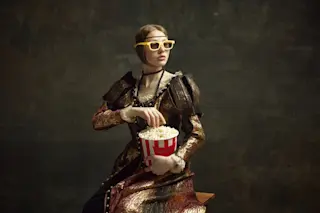Hearing the name Tiffany in a historical film or reading it in a historical book may distract the audience from the story momentarily since, surely, people were not named Tiffany centuries ago. It's a modern name, right? But the name Tiffany indeed came from the historical name Theophania, which originated in the 12th century.
The Tiffany Effect, or the Tiffany Problem, refers to terms that seem modern but, in fact, have much older roots. The name Tiffany inspired the term because most people think Tiffany is modern name when it is instead centuries old. The term was coined by the fantasy and science fiction writer Jo Walton.
The Tiffany Effect happens when people perceive popular culture in mediums like books, sitcoms, or movies to be historically inaccurate because they seem to be too modern when they’re actually not, says Jennifer B. Delfino, Ph.D., an anthropologist at the University of Illinois ...















